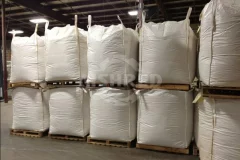
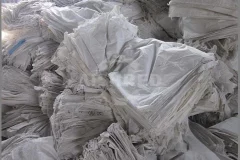
Flexible Intermediate Bulk Containers (FIBC) bags are a globally recognized solution for bulk material handling. Unlike standard woven bags, they typically hold 1000L and offer superior load capacity and durability. Widely used in industries such as chemicals, mining, and food, FIBC bags come in various types for different applications, including general transport, anti-static, fire-resistant, and conductive environments. Made from woven polypropylene or polyethylene fabric, they are safe, non-polluting, and reusable. These bags are known as "ton bags" in China and "jumbo bags," "bulk bags," or "big bags" elsewhere, highlighting their versatility and importance in logistics and warehousing.Why Shredding FIBC Bulk Bags?FIBC bulk bags made from PP or PE materials can be recycled multiple times. When these bags reach the end of their useful life, they are shredded and converted into new plastic pellets, which can then be used to manufacture new products. The recycling process typically involves shredding,
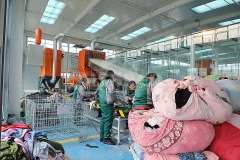
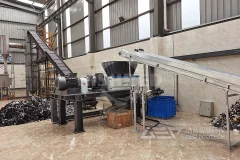
Waste fabrics disposal, similar to tire recycling, is an important aspect of sustainable waste management.Here's an overview of the disposal process:1. Collection and Sorting:Waste fabrics are collected from various sources such as textile manufacturers, garment factories, and post-consumer sources like used clothing and household textiles. These fabrics may include cotton, polyester, nylon, wool, and other materials.2. Shredding:The collected fabrics are shredded into smaller pieces using specialized shredding equipment. Shredding helps to reduce the fabrics into manageable sizes for further processing. 3. Cleaning and Sorting:After shredding, the fabric scraps undergo cleaning to remove any contaminants such as dirt, buttons, zippers, and other non-textile materials. Sorting is also carried out to separate different types of fabrics based on material composition and color.4. Fiber Reclamation:Once cleaned and sorted, the shredded fabric pieces are processed to extract the fibers. This can involve
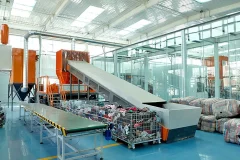
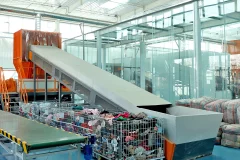
Textile Waste Processing
2022-03-03Waste, trimmings and discarded textiles, clothing and leather from the textile and garment industry are solid wastes that are as difficult to degrade as plastics. Simple piles or landfills not only take up space but also pollute the environment and cause waste. Using proven systems for shredding these materials, these wastes can be recycled for fibre or processed into boiler fuel for power/heat generation.GEP ECOTECH has a proven solution for shredding waste textiles, using industrial grade twin shaft shredders that efficiently shred objects into small pieces for easy subsequent processing, even heavy carpets are easily handled with shredders using GEP ECOTECH technology.For most small applications, the use of one GEP ECOTECH shredder + loading belt is sufficient, simple and reliable.GEP ECOTECH offers a range of scrap textile shredding machines from small to very large sizes, with capacities ranging from a few tens of kilograms per hour to over ten tons per hour.



